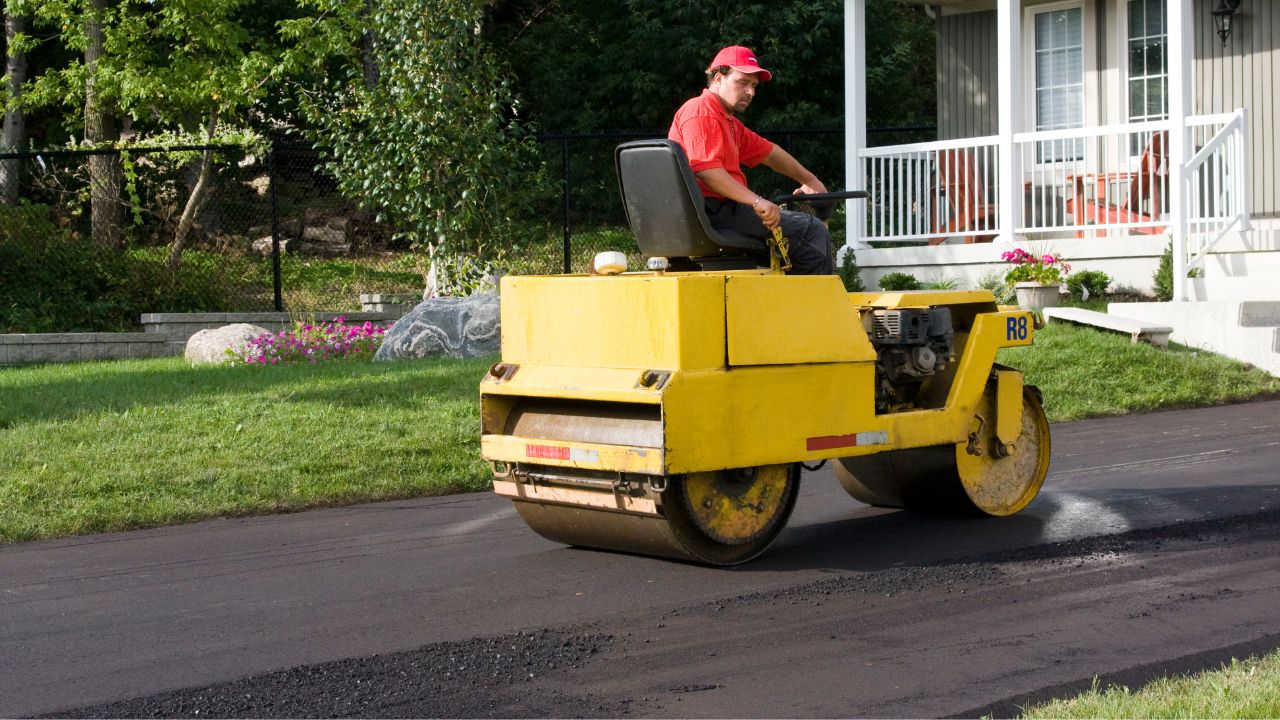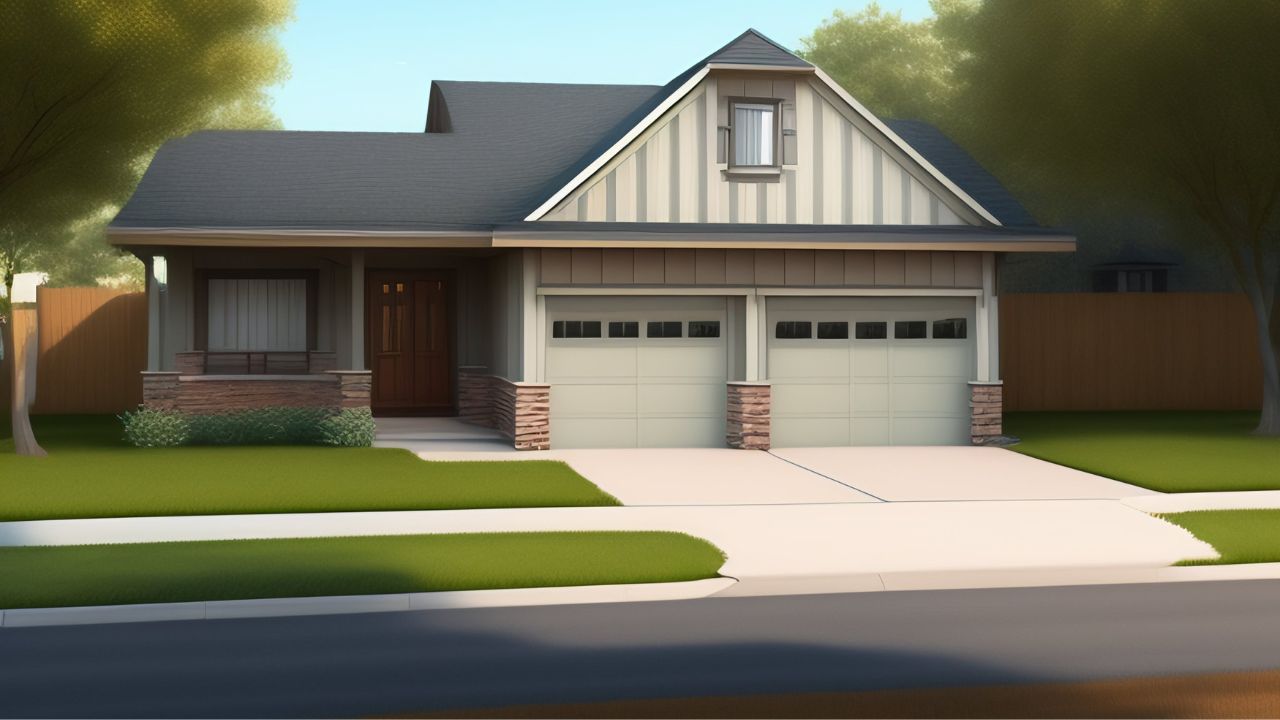Cost To Seal Driveway
Sealing your driveway is a wise investment, and understanding the associated costs is crucial for effective planning, whether for a residential or commercial property. The price to seal a driveway typically falls within the range of $0.50 to $1.50 per square foot, with an average cost of approximately $1 per square foot. Various factors contribute to the overall expense, including the size of the driveway, the type of sealant chosen, and the number of coats applied. To provide a practical example, a standard two-car driveway measuring 20 feet in width and 40 feet in length (800 square feet) may incur sealing costs ranging from $400 to $1,200.
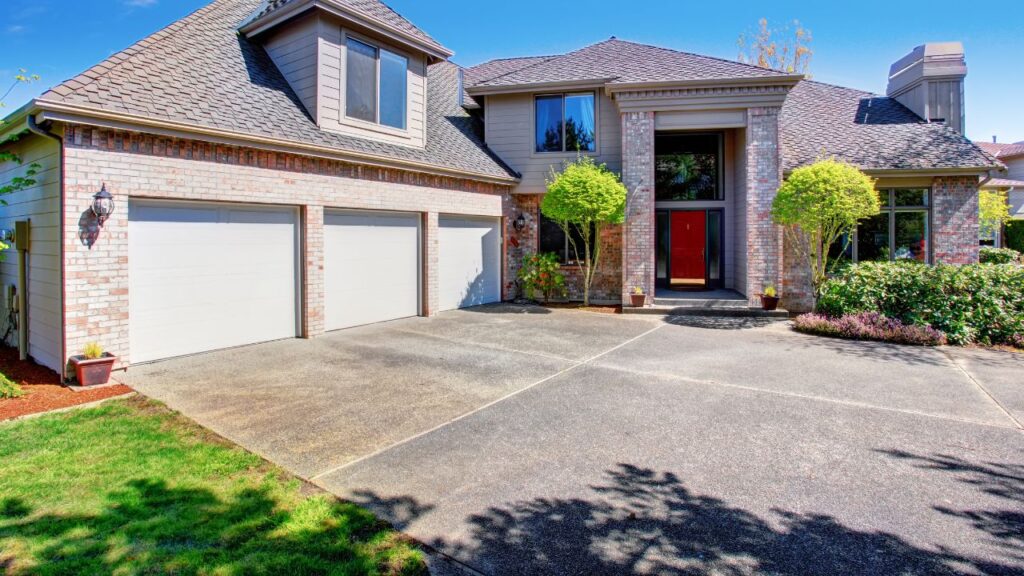
The actual material cost for driveway sealer varies between $3 and $25+ per gallon. A single gallon can cover 760 square feet with one coat or 380 square feet with two coats. Beyond cost considerations, sealcoating offers protection against adverse weather conditions, oil, and UV rays, emphasizing its role in preserving the integrity of both residential and commercial driveways.
Driveway Sealing Cost Breakdown
Enhancing your property’s curb appeal and safeguarding outdoor spaces from the damaging effects of the sun and potential spills is a smart investment. Gain insights into the breakdown of costs to make informed decisions about your driveway sealing project.
Labor:
Labor comprises a substantial 50% to 70% of the overall cost, averaging at $2.20 per square foot. In practical terms, reputable driveway contractors charge around $1,100 for a 500-square-foot space and over $2,000 for a 1,000-square-foot driveway. It’s worth noting that some contractors may impose a minimum labor fee for smaller areas. Labor costs can vary based on project complexity, unforeseen challenges, and additional services such as crack cleaning and repairs. For accurate pricing, consult with top-notch driveway contractors in your area, detailing your specific requirements.
Materials:
The remaining 30% to 50% of costs are attributed to materials, encompassing sealant and related compounds. Sealant prices fluctuate depending on the formula, with an average cost ranging from $0.12 to $0.80 per square foot. For a standard 500-square-foot driveway, approximately 5 gallons of sealant are needed, totaling $60 to $340. It’s important to note that this estimate assumes a single coat; for multiple coats, the cost doubles.
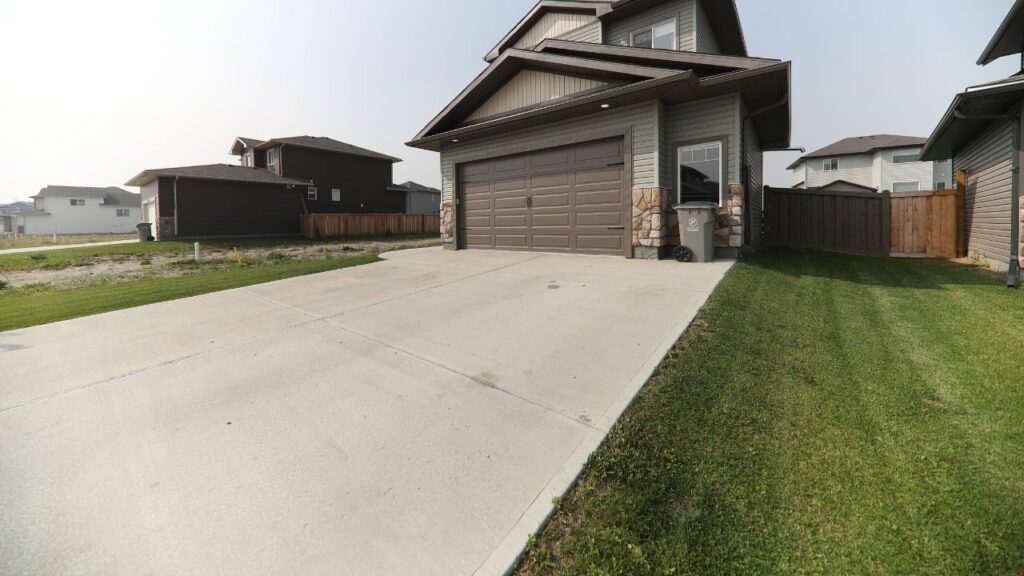
Fast-drying sealcoating, while more expensive at an increased cost of $0.15 per square foot, provides notable advantages and disadvantages compared to other options. Its rapid drying and curing process, completing within 24 hours, significantly saves time. Despite being more environmentally friendly than coal tar, fast-drying compounds release trace amounts of volatile organic compounds (VOCs). However, the downside lies in durability, necessitating resealing approximately every two years.
Here’s the information in a table format:
Sealant Type | Average Cost per Square Foot |
Fast-drying | $0.15 |
Coal tar | $0.12 |
Asphalt emulsion | $0.13 |
Latex acrylic | $0.30 |
Oil-based | $0.25 |
Fill-and-seal | $0.50 |
Your choice of sealant significantly influences both the overall cost and the ultimate outcome of your sealing project. Consider investing in premium formulations, especially if you reside in regions characterized by extreme temperature variations during summer or winter. Opting for higher-end sealants can help you avoid the need for frequent resealing. On the other hand, if you live in a more temperate climate, budget-friendly options may suffice. Use this table to guide your decision-making process based on the specific characteristics of each sealant type.
How much does driveway sealing cost?
The average cost for materials and labor to sealcoat asphalt is $0.26 to $0.58 per square foot. For a basic 480 square foot driveway, you can expect to pay $120 to $155 for sealing. For a larger 1,000 square foot driveway, contractors typically charge between $190 and $270 for sealcoating. Prices depend on whether you get one or two coats and most will charge a minimum fee of $100 to $200 for the project.
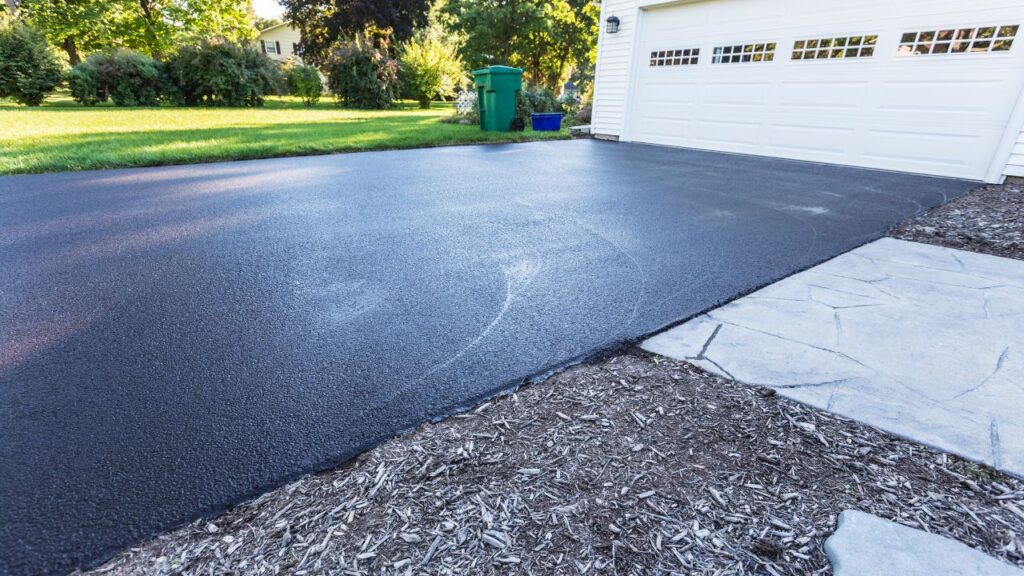
Fast-Drying Sealcoating
Fast-drying sealcoating, while more expensive at an increased cost of $0.15 per square foot, provides notable advantages and disadvantages compared to other options. Its rapid drying and curing process, completing within 24 hours, significantly saves time. Despite being more environmentally friendly than coal tar, fast-drying compounds release trace amounts of volatile organic compounds (VOCs). However, the downside lies in durability, necessitating resealing approximately every two years.
Coal Tar
Coal tar, the most cost-effective choice, now ranges from $0.09 to $0.15 per square foot. While fairly durable, with a typical resealing interval of three to four years, it poses environmental concerns. Rich in carcinogens, according to the National Cancer Institute, coal tar runoff may contaminate soil and nearby water. If budget constraints exist and no produce is grown on the property, it remains a viable option.
Asphalt Emulsion
Asphalt emulsion sealant, priced between $0.12 and $0.15 per square foot, strikes a balance between cost and environmental impact. Popular among homeowners, its durability extends to four years or more before requiring resealing. However, the installation process demands warm weather (50 degrees Fahrenheit and rising) and is susceptible to oil and gasoline spills.
Latex Acrylic
Considered one of the more expensive options, latex acrylic sealant now averages $0.40 to $0.50 per square foot. Yet, its resistance to stains and non-toxic nature justifies the higher cost. Featuring synthetic polymers that withstand high temperatures and resist UV rays, it requires minimal resealing, typically every five to 10 years. Suitable for filling deep cracks and medium-sized pits, it may be challenging for DIYers during installation.
Oil-Based
Oil-based sealants, offering a moderate compromise at an increased cost of $0.25 to $0.30 per square foot, provide decent durability and a lifespan of around four years. With less environmental impact than coal tar, it serves well for filling shallow cracks and holes. However, for larger holes, latex acrylic sealant is a more suitable choice.
Driveway Sealing Cost by Location
The cost of labor and materials for driveway sealing varies based on environmental conditions and material availability. Labor costs tend to be higher in densely populated areas and lower in rural regions, although extended commutes in rural locations can somewhat balance this out. However, the primary determinant is the prevailing weather conditions. Here’s a breakdown of costs by region:
Northeast
The Northeast, encompassing states like New York, offers some of the most budget-friendly sealant options in the country, with an average cost ranging from $320 to $1,400. The high population density drives up competition, and the region generally experiences temperate weather, with moderate winters. As you move north and encounter more severe winter storms, the average price rises due to certain budget-friendly sealant formulations not being suitable for harsh winter climates.
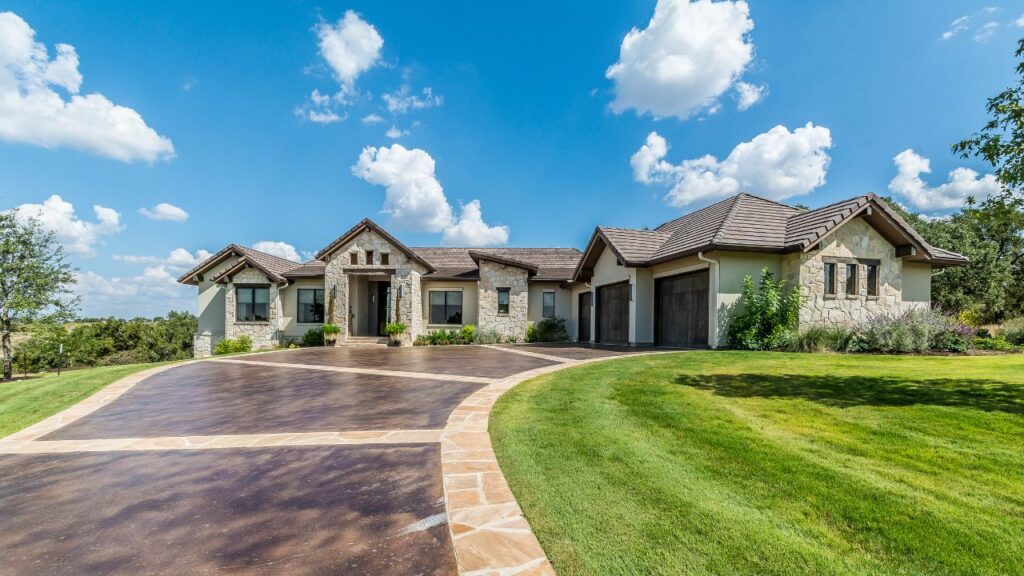
South
Southern states like Florida and Georgia experience minimal winter conditions, making cold weather a non-issue for driveway sealing. However, the high temperatures in these states limit the potential sealant materials. Sealing a driveway in the southern states costs anywhere from $500 to $2,000.
Midwest
The Midwest is renowned for extreme winter conditions, leading to increased prices in states like Minnesota. On the other hand, states like Ohio avoid the worst aspects of the winter season, keeping prices relatively stable and in line with national averages, ranging from $400 to $1,400.
Factors Impacting Driveway Sealing Costs
In addition to labor, materials, and location, several other crucial factors play a significant role in determining the costs associated with driveway sealing estimates.
Driveway Size:
Unsurprisingly, the size of the driveway is a primary determinant of sealing costs. Larger square footage translates to higher overall prices, with materials ranging from $0.12 to $0.80 per square foot. Standard driveways, often around 500 square feet, necessitate 5 gallons of materials, while costs can double for larger driveways spanning 1,000 square feet.
Additional Coats:
Prioritizing durability and lifespan? Opt for a second coat. Applying an extra layer enables the sealant to withstand extreme weather events, prolonged exposure to heat and cold, as well as incidental damage and regular wear-and-tear. However, the addition of a second coat essentially doubles the overall cost, encompassing both labor and materials. While some contractors may offer a slight discount, it’s crucial to discuss and explore your options.
Affiliated Repairs:
Before proceeding with the sealing project, addressing any holes, cracks, or chips in the driveway is imperative. While certain sealant types, like fill-and-seal and latex acrylic compounds, naturally fill in smaller-sized imperfections, labor-intensive repairs require the expertise of a driveway contractor. Driveway repairs typically cost between $4 to $8 per square foot, depending on the severity of the issue. Expenses range from $400 for minor repairs to $8,000 for extensively damaged driveways. In cases of severe damage, considering starting anew might be a more cost-effective solution. Paving a driveway from scratch generally falls within the range of $4,000 to $14,000, making it a viable option for extreme damage scenarios.
Additional Costs and Considerations in Driveway Sealing
In certain instances, you may encounter additional costs and considerations that impact the overall estimate when sealing a driveway. While not applicable to everyone, it’s valuable to be aware of potential challenges that may arise.
Professional Cleaning:
Should your driveway necessitate cleaning before the application of sealant, the estimate will increase based on hourly labor rates. Some professionals may include a post-job power wash as part of their service, while others may charge an additional fee. If an extra cost is incurred, power washing a driveway typically ranges from $0.40 to $0.80 per square foot. In some cases, a driveway contractor might recommend a specialized pressure washing company.
Sealing Nearby Areas:
Why limit the improvement to just the driveway? If contractors are already on-site, consider bundling multiple sealing jobs into one. Assess other areas on your property, such as concrete pathways, patios, asphalt decks, and similar fixtures that could benefit from sealant application. Most driveway contractors charge an initial service fee of $200 to $400, regardless of job size, making it cost-effective to address multiple areas in a single visit.
Aesthetic Enhancements:
For those seeking unique aesthetic enhancements for their driveways, options like stamping a custom design or altering the surface color can add to the overall cost of a standard sealing job. Professionals typically complete these projects before applying the sealant. For instance, applying a pigment dye can cost anywhere from $0.50 to $1.00 per square foot, contributing to a personalized and enhanced visual appeal.
FAQs: Driveway Sealing Costs
The cost to seal a driveway typically ranges from $0.50 to $1.50 per square foot, with an average cost of approximately $1 per square foot.
The sealing cost is determined by multiplying the square footage of the driveway by the cost per square foot. For example, a 500-square-foot driveway may cost between $250 and $750 to seal.
Various factors contribute, including the size of the driveway, the type of sealant chosen, and the number of coats applied. Labor and material costs are significant components.
Labor typically constitutes 50% to 70% of the overall cost, averaging around $2.20 per square foot. Reputable contractors may charge $1,100 for a 500-square-foot space and over $2,000 for a 1,000-square-foot driveway.
Materials, including sealant and related compounds, make up the remaining 30% to 50% of costs. Sealant prices vary from $0.12 to $0.80 per square foot, depending on the type chosen.
Sealant types include fast-drying, coal tar, asphalt emulsion, latex acrylic, oil-based, and fill-and-seal. Costs range from $0.12 to $0.50 per square foot, with each type offering specific advantages and disadvantages.
The choice of sealant significantly influences both cost and outcome. Factors such as drying time, durability, environmental impact, and resealing frequency should be considered when selecting a sealant.
Costs vary by region. The Northeast, South, and Midwest experience different pricing due to factors like weather conditions, material availability, and population density.
Factors include driveway size, additional coats for durability, affiliated repairs for existing damage, and potential extra costs such as professional cleaning, sealing nearby areas, and aesthetic enhancements.
Conclusion
Investing in driveway sealing proves to be a strategic decision for both residential and commercial properties. With costs ranging from $0.50 to $1.50 per square foot, understanding the breakdown is essential. Labor, comprising 50-70% of expenses, averages $2.20 per square foot, while materials, accounting for 30-50%, range from $0.12 to $0.80 per square foot. The choice of sealant, influenced by factors like drying time and durability, significantly impacts costs. Location also plays a role, with regional variations in pricing. Factor in additional considerations like driveway size, extra coats for longevity, and potential affiliated repairs for a comprehensive budget. Make an informed decision to enhance your property’s longevity and curb appeal.
Process To Get Seal Driveway Cost Estimate Report
Here I am going to share some steps to get a seal driveway cost estimate report.
-
You need to send your plan to us.
You can send us your plan on info@estimatorflorida.com
-
You receive a quote for your project.
Before starting your project, we send you a quote for your service. That quote will have detailed information about your project. Here you will get information about the size, difficulty, complexity and bid date when determining pricing.
-
Get Estimate Report
We do seal driveway cost estimating and prepare a detailed report for your project. At last you finalize the report and finish the project.
Google Reviews





